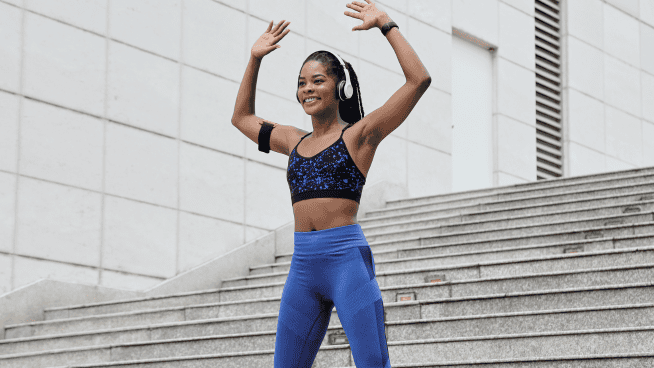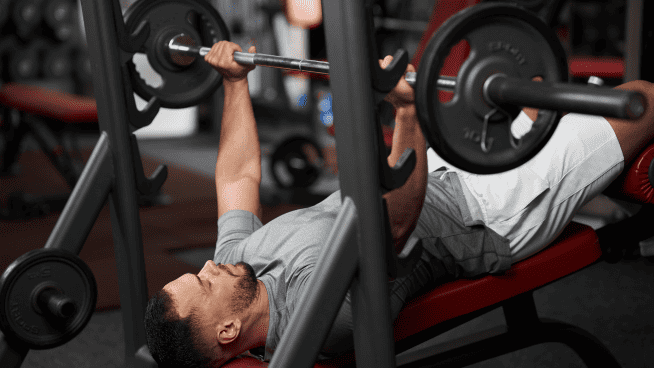Real Athletes Eat Fat
Most athletes know about the downside of consuming fat. Eat too much, and you put yourself at risk for heart disease, hypertension, diabetes and cancer. However, it’s important to remember that fat does have several health benefits, especially for athletes. If you want to supercharge your athletic performance, you need to include daily servings of fat in your diet.
Types of Fat
Not all fat is created equal. There are four major types: saturated, polyunsaturated, monounsaturated and trans fat. You typically want to avoid saturated fat and trans fat, the types most commonly found in fast food and meat byproducts—like greasy fries and those huge white slabs on your ribeye. But polyunsaturated and monounsaturated fats get the green light. Found in fish, nuts and oils (like coconut oil and olive oil), they help reduce blood pressure and protect against heart disease.
How Athletes Benefit from Fat
Healthy sources of fats help your body:
- Absorb vitamins A, D, E and K. Because these vitamins are fat-soluble, the body digests them through fat. These vitamins help you become a better athlete by boosting bone density, repairing muscle cells and promoting blood clotting. If your daily diet doesn’t include fat and these vitamins, you’re setting yourself up for trouble whenever you train.
- Provide energy. If you want to be super active in your sport, your body requires lots of energy. When you’re training, playing in a game or taking part in any strenuous activity, your body turns to your fat stores for an energy surplus.
- Protect internal organs. You need fat in your body to protect your organs and keep your temperature regulated. However too much fat, especially belly fat, is detrimental to your performance and health.
Real Athletes Eat Fat
Most elite athletes understand the role of fat in their diets. Olympic gold medalist Apolo Ohno told STACK he consumes it daily. “It’s very important to have balance in your diet. Nutrition is a very big part of training, and for myself especially, I can’t eat enough of it.” Ohno is often found at Subway ordering up a honey-oat, double turkey, “because I like more protein, lettuce, tomato, jalapeno, avocado, oil, vinegar and banana peppers.”
Pro-Bowler Ndamukong Suh has also learned about healthy fat options. The Lions DT uses avocado for the “fats that I would usually get from not as healthy sources, like bacon.”
Healthy Fat Options
Avocado and olive oil are excellent fat sources that you can easily include in your meals. Put them on a sandwich, make some guacamole, or toss pasta with a little oil olive and cheese for a double dose at dinner. Other good choices include natural peanut and nut butters, nuts, salmon, tuna and dark chocolate.
RECOMMENDED FOR YOU
Real Athletes Eat Fat
Most athletes know about the downside of consuming fat. Eat too much, and you put yourself at risk for heart disease, hypertension, diabetes and cancer. However, it’s important to remember that fat does have several health benefits, especially for athletes. If you want to supercharge your athletic performance, you need to include daily servings of fat in your diet.
Types of Fat
Not all fat is created equal. There are four major types: saturated, polyunsaturated, monounsaturated and trans fat. You typically want to avoid saturated fat and trans fat, the types most commonly found in fast food and meat byproducts—like greasy fries and those huge white slabs on your ribeye. But polyunsaturated and monounsaturated fats get the green light. Found in fish, nuts and oils (like coconut oil and olive oil), they help reduce blood pressure and protect against heart disease.
How Athletes Benefit from Fat
Healthy sources of fats help your body:
- Absorb vitamins A, D, E and K. Because these vitamins are fat-soluble, the body digests them through fat. These vitamins help you become a better athlete by boosting bone density, repairing muscle cells and promoting blood clotting. If your daily diet doesn’t include fat and these vitamins, you’re setting yourself up for trouble whenever you train.
- Provide energy. If you want to be super active in your sport, your body requires lots of energy. When you’re training, playing in a game or taking part in any strenuous activity, your body turns to your fat stores for an energy surplus.
- Protect internal organs. You need fat in your body to protect your organs and keep your temperature regulated. However too much fat, especially belly fat, is detrimental to your performance and health.
Real Athletes Eat Fat
Most elite athletes understand the role of fat in their diets. Olympic gold medalist Apolo Ohno told STACK he consumes it daily. “It’s very important to have balance in your diet. Nutrition is a very big part of training, and for myself especially, I can’t eat enough of it.” Ohno is often found at Subway ordering up a honey-oat, double turkey, “because I like more protein, lettuce, tomato, jalapeno, avocado, oil, vinegar and banana peppers.”
Pro-Bowler Ndamukong Suh has also learned about healthy fat options. The Lions DT uses avocado for the “fats that I would usually get from not as healthy sources, like bacon.”
Healthy Fat Options
Avocado and olive oil are excellent fat sources that you can easily include in your meals. Put them on a sandwich, make some guacamole, or toss pasta with a little oil olive and cheese for a double dose at dinner. Other good choices include natural peanut and nut butters, nuts, salmon, tuna and dark chocolate.











